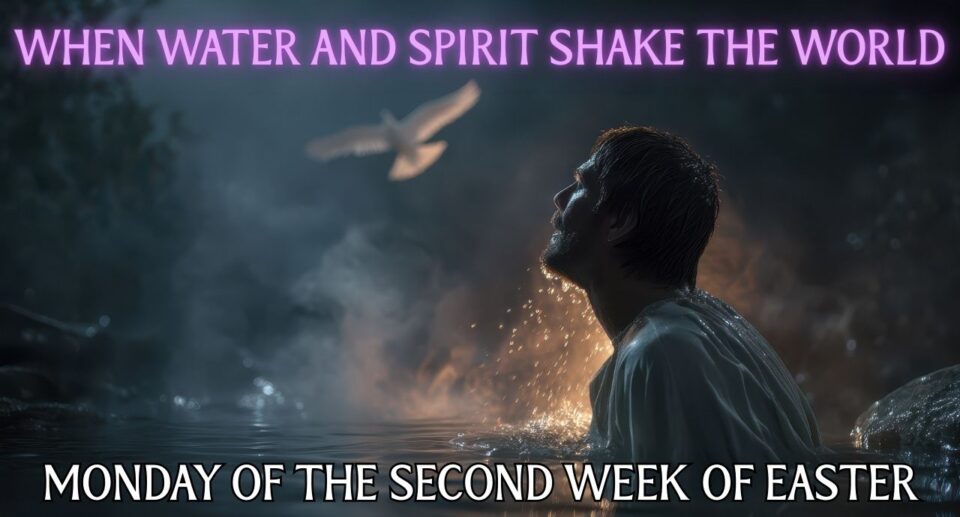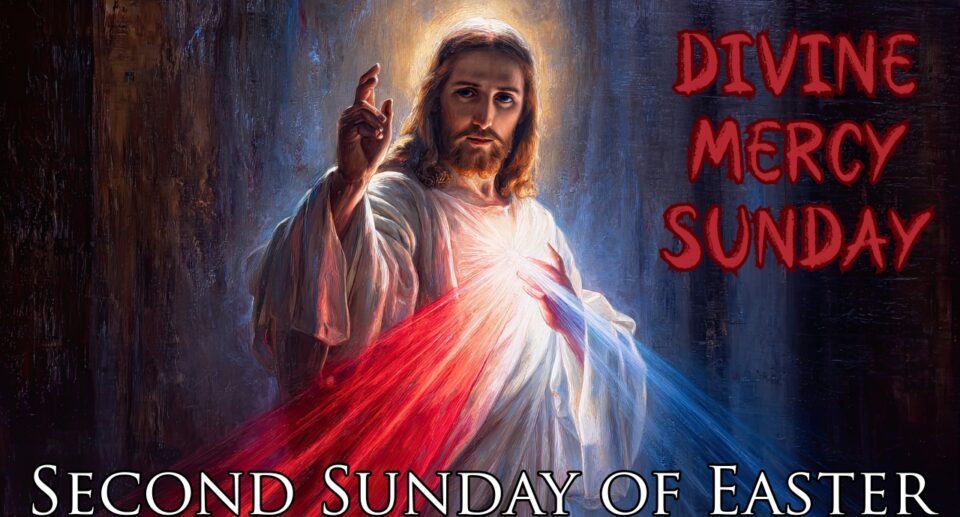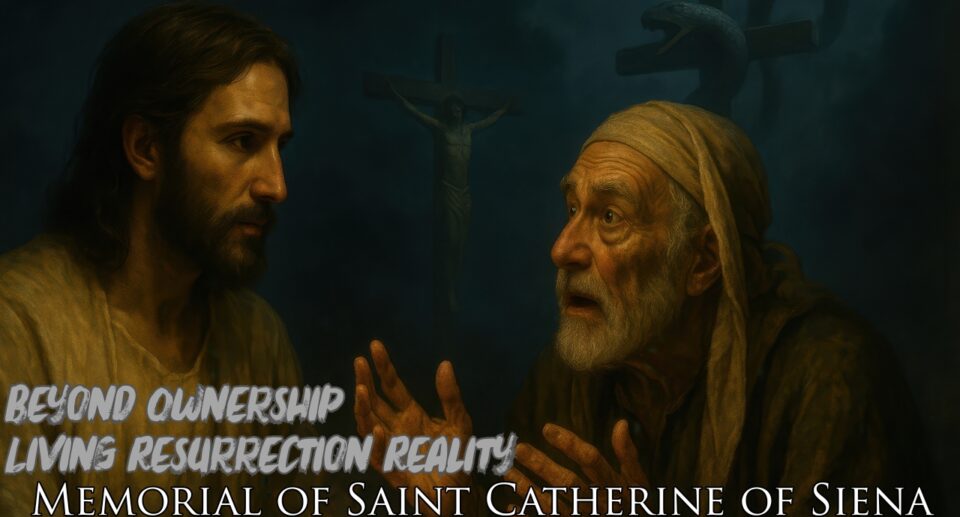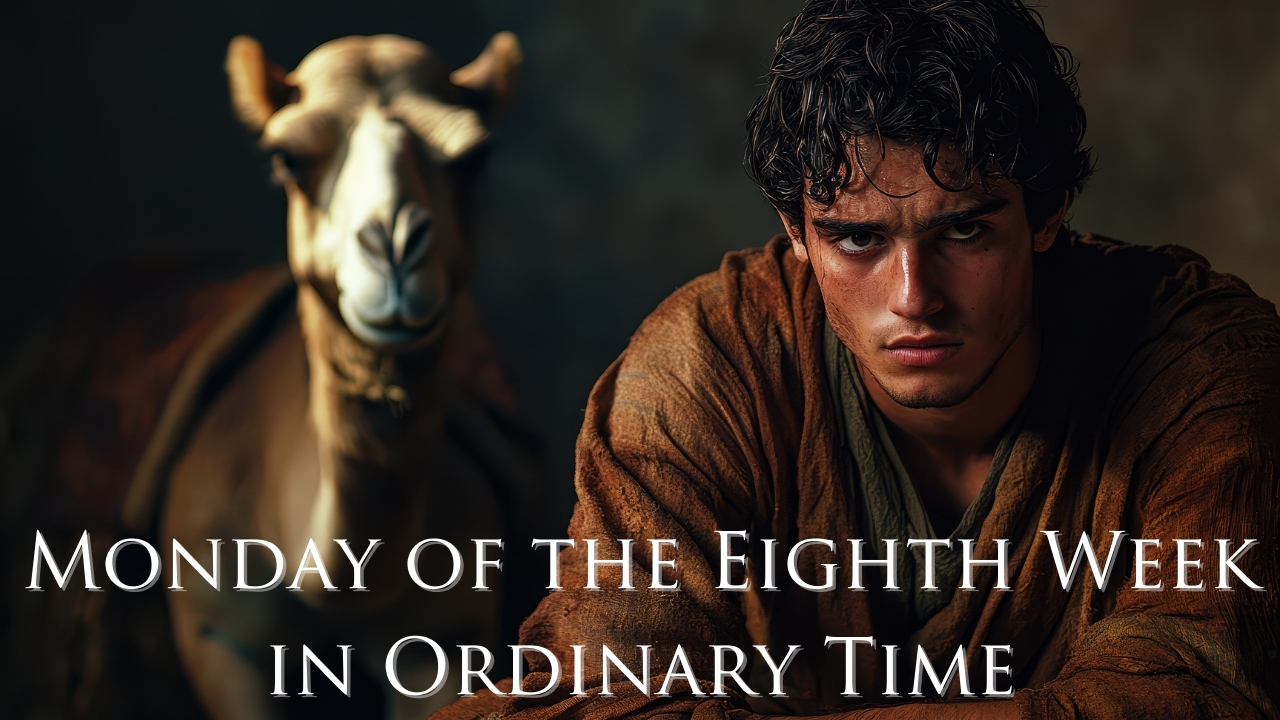Earthquake Faith: When Water and Spirit Shake the World | Daily Readings | April 28, 2025

“After they prayed, the place where they were meeting was shaken.” This extraordinary moment from Acts After they prayed, the place where they were meeting was SHAKEN! Discover the extraordinary moment in Acts 4 when ordinary believers prayed with such powerful faith that the physical world responded. This reflection explores the transformative connection between baptismal identity and prayers that literally change reality.
Through this reflection, you’ll discover:
- Why the apostles prayed for boldness rather than safety when threatened
- How being “born of water and Spirit” transforms our response to opposition
- What happens when heaven’s purposes collide with earth’s resistance
- Where this earthquake faith can appear in your own circumstances today
Readings covered: Acts 4:23-31; Psalm 2:1-3, 4-7a, 7b-9; John 3:1-8
Timeline: 00:00 Introduction 00:42 First Reading 03:15 Psalm Response 05:20 Gospel Reading 07:35 Reflection 18:20 Closing Prayer
Perfect for anyone seeking deeper understanding of baptismal identity, spiritual courage in challenging circumstances, or a fresh perspective on prayer that doesn’t just request divine intervention but unleashes divine power.
#CatholicDailyReadings #EarthquakeFaith #SpiritAndWater
Earthquake Faith: When Water and Spirit Shake the World
The earth moved.
Not metaphorically. Not symbolically. The physical ground trembled beneath their feet.
“After they prayed, the place where they were meeting was shaken.”
Think about that. Their prayer physically altered reality. The very molecules of stone and wood vibrated in response to their words. What kind of prayer does that?
Not polite religious murmuring. Not comfortable spiritual platitudes. This was the prayer of people who had been fundamentally transformed—people who had died and risen with Christ through water and Spirit.
Hours earlier, Peter and John had stood before the Sanhedrin—the same council that engineered Jesus’ execution. These powerful men demanded to know by what authority they had healed a lame beggar.
Peter, filled with the Holy Spirit, didn’t hedge: “It is by the name of Jesus Christ of Nazareth, whom you crucified but whom God raised from the dead.”
The council, stunned that “ordinary men” could speak with such authority, resorted to threats. Stop speaking about Jesus—or else.
So what did these threatened believers pray for when they gathered? Security? Protection? Divine vengeance against their enemies?
No. They prayed for greater boldness.
“Now, Lord, consider their threats and enable your servants to speak your word with great boldness.”
And the earth shook.
This moment reveals everything about authentic faith. It doesn’t seek comfort but embraces conflict. It doesn’t retreat from opposition but transforms how we face it. It doesn’t pray for safety but for courage to step further into danger.
But where does such courage come from? Not from human bravado or temporary enthusiasm.
In our Gospel, Jesus tells Nicodemus the source: “Very truly I tell you, no one can enter the kingdom of God without being born of water and Spirit.”
This is baptismal language. To be “born of water” is to pass through the waters of baptism, to be sacramentally united with Christ’s death and resurrection. To be “born of Spirit” is to be filled with the same divine life that raised Jesus from the dead.
The apostles who prayed until the earth quaked were not just courageous individuals. They were baptized believers whose very identity had been transformed by water and Spirit. Their boldness flowed directly from their baptismal identity—they were already dead to this world’s threats because they had already died with Christ.
Our psalm reinforces this revolutionary pattern. It speaks of rulers who “band together against the LORD” and nations who “plot in vain.” Then comes the divine response: “The One enthroned in heaven laughs.”
This isn’t cruel mockery but divine perspective. Human opposition ultimately cannot prevail against God’s purposes. The proper response? “Serve the LORD with fear… Take refuge in him.”
This refuge isn’t passive hiding. It’s active alignment with God’s sovereign purposes even when they clash with worldly power. The apostles didn’t retreat into private spirituality after their prayer meeting earthquake—they spoke more boldly in public spaces.
Nicodemus comes to Jesus under cover of darkness, representing the cautious, calculating approach to faith. Jesus challenges this with baptismal imagery: You must pass through water and Spirit. You must allow your old identity to die and receive a new one from above.
Jesus continues: “The wind blows where it wishes… So it is with everyone born of the Spirit.”
The Spirit, like wind, cannot be controlled or predicted. The apostles couldn’t have anticipated their prayer meeting earthquake, and we can’t program authentic spiritual transformation. But this unpredictability doesn’t mean the Spirit works in a vacuum. The Spirit moves powerfully through the sacramental waters of baptism and continues moving through the baptized when they pray with boldness.
This is what many modern believers miss. We want the earthquake without the water. We seek Spirit-power without Spirit-identity. We pray for boldness without embracing the baptismal death that precedes resurrection courage.
History shows us what happens when sacramental identity and courageous prayer come together. During Roman persecution, baptized Christians prayed with boldness—and their numbers inexplicably multiplied. During Nazi oppression, the Confessing Church grounded their resistance in baptismal identity—and their witness grew stronger even as danger increased. When Civil Rights leaders gathered in prayer, they drew on baptismal language of dying to self and rising with Christ—and discovered supernatural bravery that physical threat couldn’t extinguish.
Each time, the pattern repeated: people who had passed through water and Spirit aligned themselves with divine purposes bigger than personal safety, and spiritual earthquakes resulted.
Most of us won’t experience literal earthquakes during prayer. But all baptized believers can experience the ground-shifting reality that Jesus described to Nicodemus. All can know what it means to face opposition with heaven-inspired boldness rather than earth-bound fear.
The early Christians didn’t pray away their problems; they prayed through them. They didn’t ask for changed circumstances but for changed hearts. They didn’t seek escape from threat but courage within it.
And the room shook with heaven’s response.
What if believers today reclaimed both elements Jesus gave Nicodemus? What if we embraced both the water of baptismal identity and the Spirit of unpredictable power? What if churches gathered not simply to bemoan cultural opposition but to pray from their baptismal identity for greater boldness within it?
The ground beneath our feet might just tremble again.
When water and Spirit come together, when sacramental grace meets courageous prayer, the status quo cannot remain undisturbed. When baptized believers align fully with divine purposes, something has to give—and it’s never heaven that yields.
This week, don’t pray smaller prayers but larger ones. Not as an isolated individual but from your baptismal identity in Christ. Not “Lord, protect me,” but “Lord, embolden us.” Not “Remove my problems,” but “Reveal your purposes within them.”
For when water and Spirit truly shake the world, the ground beneath our feet cannot help but tremble.






